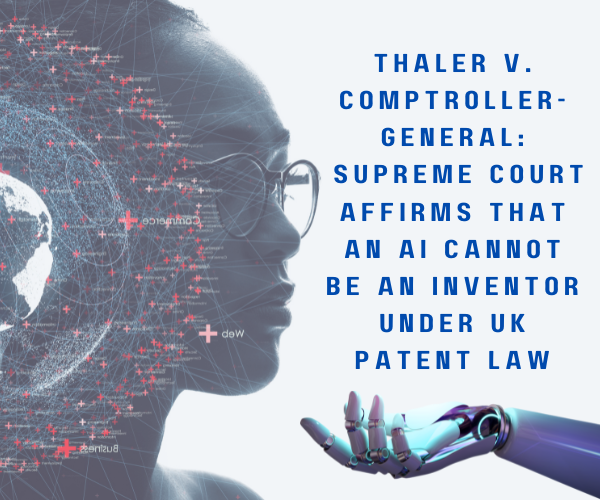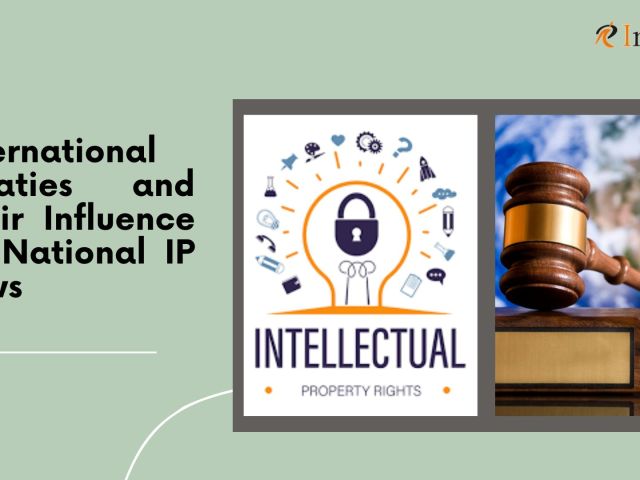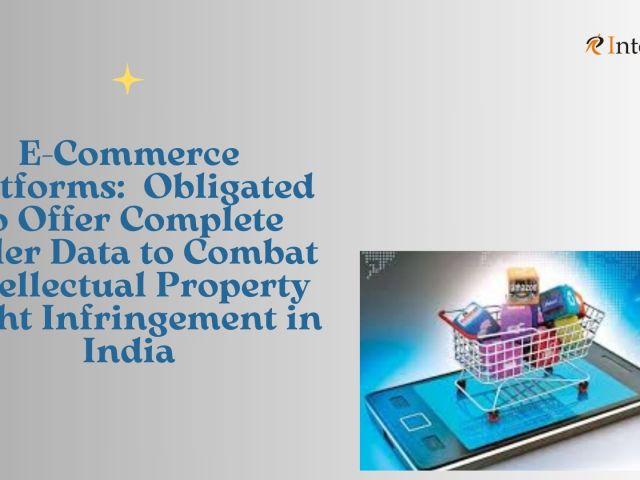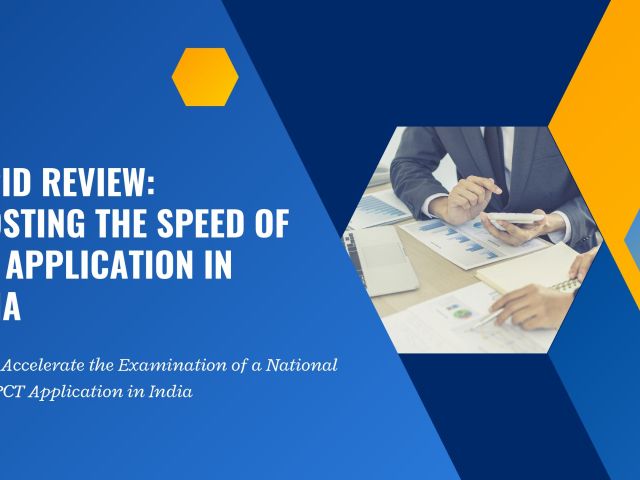Registration at UKIPO
The case in question, originating in 2019, presents a groundbreaking legal dilemma: Can an artificial intelligence (AI) system be acknowledged as an inventor for the purposes of patent ownership? This unprecedented scenario unfolded when Mr. Thaler, the applicant, approached the UK Patent Office with two patent applications. Uniquely, he declared that he was not the inventor; instead, he attributed the creations to his AI system named DABUS.
At the heart of this case lies a critical examination of the UK Patent Act 1977, specifically Section 13(2). This section mandates that a patent applicant must identify the inventor and, if the applicant is not the inventor, explain how they derived the right to the patent. Failing to comply would result in the application being considered withdrawn.
Mr. Thaler’s stance was clear: DABUS, as the AI behind the inventions, should be recognized as the inventor. The inventions themselves were not disputed for their patentability. However, the crux of the issue was the definition of an ‘inventor’. During the hearing, the patent officer, Mr. Jones, concluded that DABUS could not be regarded as a ‘person’ under sections 7 and 13 of the Patent Act. Therefore, since Mr. Thaler did not meet the requirements of section 13(2) – failing to identify a human inventor – the applications were deemed withdrawn after the 16-month period from their filing dates.
Appeal in Court of Appeal
The appeal in the Court of Appeal challenged the decision made by the patent office regarding the application submitted by Mr. Thaler where the invention was attributed to DABUS, an artificial intelligence system. The court’s decision to uphold the patent office’s rejection was based on three key grounds:
- Non-Recognition of DABUS as a Person: The first ground for refusal centered on the legal status of DABUS. The court referred to Section 7 of the Patent Act, which defines an inventor as a person who is the actual originator of the invention. Since DABUS is not recognized as a person under the law, it cannot be considered an inventor. This interpretation underscores the importance of human agency in the patent process, as the law currently stands.
- Inability to Transfer Rights from DABUS to Mr. Thaler: The second basis for refusal drew an analogy between the concepts of ownership in different contexts. The court observed that, similar to how fruits from a tree or work done by an employee can be owned by someone else, the products of an invention might be transferred. However, in the context of patents, such transfer of rights is imperative, which is problematic in this case. Since DABUS, as a non-person, cannot execute a transfer of rights, Mr. Thaler cannot claim a patent under Section 7 of the act. This part of the judgment highlights the legal complexities in recognizing AI-generated inventions.
- Evaluation of Applicant’s Justification under Section 13: The final ground for refusal was based on an assessment under Section 13 in conjunction with Section 7. This part of the ruling dealt with the controller’s duty to ascertain whether the applicant (in this case, Mr. Thaler) has a legitimate claim to the patent. Given that DABUS cannot legally hold or transfer patent rights, the court found that Mr. Thaler did not meet the necessary criteria to be granted the patent.
In Further appeal in Supreme Court
In further appeal concerning Mr. Thaler’s patent application, there were contrasting arguments presented by Mr. Thaler’s counsel and the counsel representing the comptroller.
Mr.Thaler’s counsel argued that,
- As the owner of DABUS, Mr. Thaler is eligible to apply for a patent.
- Mr. Thaler had met all the requirements as per the provisions of the Patent Act. And the act does not explicitly prevent AI-generated inventions from being patented if the human owner fulfills all other stipulated conditions.
In response, the counsel representing the comptroller endorsed the Court of Appeal’s decision, asserting that,
- The inventor must be a person, and Mr. Thaler did not adhere to this requirement, leading to the refusal.
- Instead of focusing on the technical advancements or broadening the definition of “inventor,” the appeal should be assessed based on the interpretation and application of the Patent Act, i.e., the intended purpose of the patent system and whether it should recognize AI as an inventor.
- Mr.Thaler has explicitly disclaimed being the inventor in this context.
The Present appeal involved three issues
Issues 1 – The Scope and meaning of the term “inventor” in the 1977 Act
The interpretation of Sections 7 and 13 in patent law leads to a clear conclusion: an inventor must be an individual, specifically a human. As highlighted under Section 7 (3), the term “inventor” refers to the actual originator of the invention, specifically emphasizing a human connection in relation to the originator.
Moreover, Lord Hoffmann’s stance on this matter further clarified this legal position. He stated that, “the inventor must be a natural person and that any other person to whom a patent may be granted must claim through the inventor, for example as employer or as a person who, by virtue of, for example, an enactment or rule of law, or by virtue of an enforceable term of an agreement was at the time of making the invention entitled to the whole of the property in it.” Therefore, it can be construed that a machine cannot be deemed as an “inventor” under section 7 of the act.
Issue 2 – Did Mr.Thaler own any invention resulting from a technical advance by DABUS and have the right to apply for and secure a patent for it?
In response, it was clarified that DABUS was never deemed an inventor under the scope of the 1977 act. Furthermore, Mr.Thaler has not acquired the right to assert a patent claim for any such technical advance under Section 7, as the claimant he must be the successor in title to a person specified in the section, and the doctrine of accession is not applicable in these circumstances.
Issue 3 –Was the hearing officer justified in determining that the applications would be deemed withdrawn?
The UKIPO is not obligated to check the accuracy of every application it receives. However, it does maintain the power to step in when an application seems flawed or insufficient. In Mr. Thaler’s case, the controller at UKIPO found that he failed to meet the criteria set out in Section 13. As a result, Mr. Thaler’s application was automatically considered as withdrawn due to this non-compliance.
In the definitive judgement issued on 20 December 2023, the appeal lodged by Mr. Thaler was ultimately rejected. This decision reaffirmed the rulings of both the controller and the Court of Appeal. The consistency in these decisions highlights the legal rigidity regarding the recognition of inventors and the requirements for patent applications in the context of inventions created by AI systems like DABUS.




